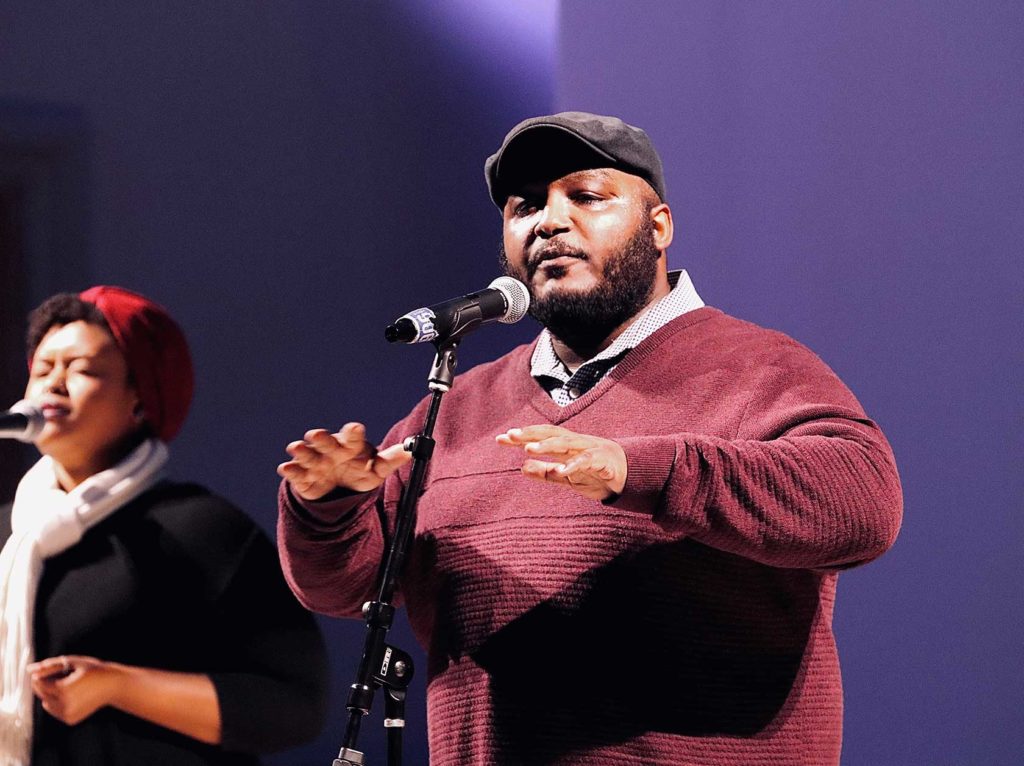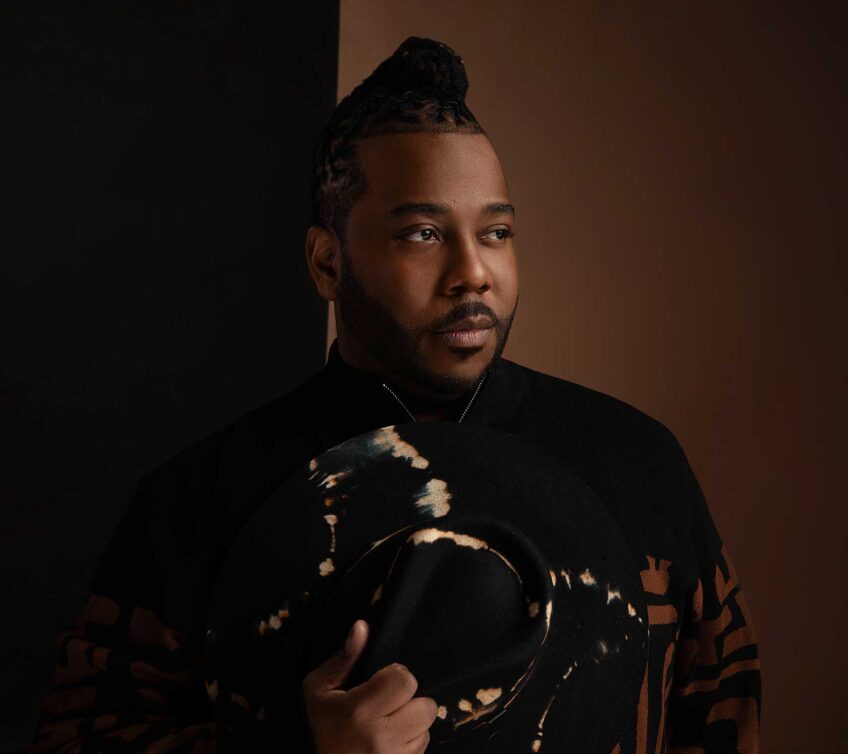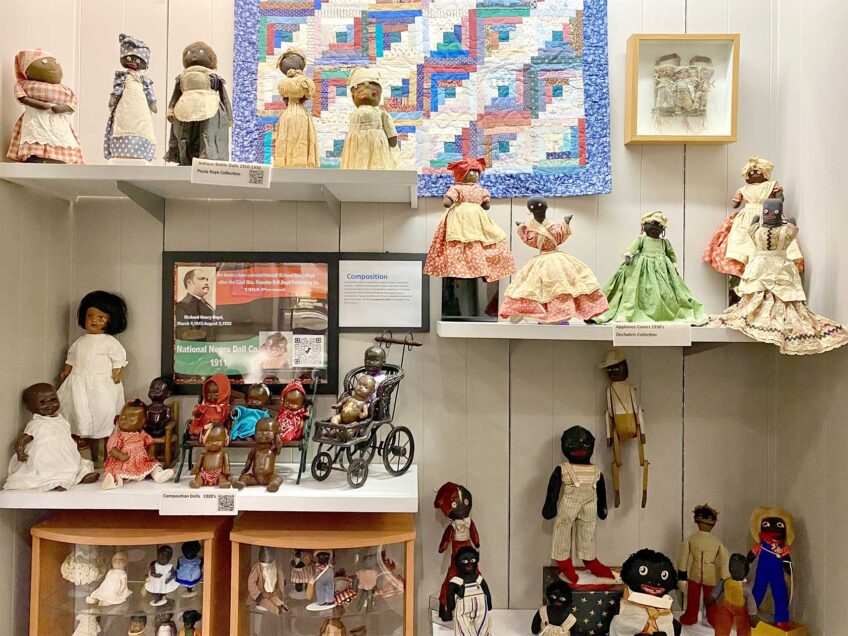
Paul Willis, who is performing onstage at the BAMS Festival in Franklin Park on June 11, is a musician, educator, artist and community organizer. With more energy than Con Edison and Eversource combined, the Boston resident focuses on bringing together seemingly disparate artistic, political and economic elements. Willis spoke to the Banner recently about his work.
What and when are you performing at the BAMS Festival?
I’ll be onstage with a live band at 2:10 for about a half an hour doing songs from my album, “Wonderland.” It’ll be hip-hop and spoken word. Soulful and jazzy!
Your most recent recording is “The Flood,” a song released in January as a comment on your return to Boston after 10 years in Sacramento, California. Tell us about that.
I grew up in Jamaica Plain and never thought I’d see life outside my neighborhood. But I got an opportunity to start a City Year affiliate in Sacramento. At the same time as that was happening, I was coming into my own as a hip-hop artist. So when I came back home, to work with 826, another education non-profit, it wasn’t an easy transition for the first three months. I had writer’s block: no new music, no new poems. But then Lewis Morris, a long-time collaborator and a slam poet, producer and rapper out of Providence, sent me the beat that led to that song, and all the gates opened. The song is a reflective, internal dialogue.
“Wonderland,” released in January 2021, is a tour of Boston and Cambridge, with tracks including “Codman Square,” “Ruggles,” “Dudley,” “Heath Street,” “Jackson Square” and “Kendall MIT.” How did that album evolve?
That album took four years to put together. People might know my music, but they didn’t know me. The lyrics turn inward. For example, “Codman Square,” speaks directly to my relationship to people and places there, like my auntie’s restaurant, “A Taste of Eden,” that has, I think, the best Jamaican patties in the city! The hardest part of the recording was putting in the sound; I wanted a live band sound. So I connected with the Bap Notes, guys in their 40s and 50s who play R&B, soul, jazz and funk — they can play that kind of music in their sleep! Then, too, what took the longest time was the writing: I’d call up my brother and sister and ask, “Did this or that actually happen?” Overall, the album is less about the physical places than the people and memories that took place there.
You are the writers’ room manager at 826 Boston. What is 826 and what exactly do you do for them?
It’s a national nonprofit that works with youth on their writing. [In Boston] we’re in partnership with the Boston Public Schools. I supervise the programs at the high school level and drop into schools such as the Jeremiah Burke and John D. O’Bryant. We work with students on the spoken word, creative writing, journalism, screenwriting, college essays and so on. We help students showcase their work, and we introduce them to professionals. I also supervise the Youth Literary Advisory Board, which is made up of 10 students from all over Boston. Right now we’re working on a book project about their neighborhoods. Collin Knight is helping out; he founded Live Like A Local Tours and leads historical tours through Roxbury and Jamaica Plain, sort of like a version of the Freedom Trail.
Tell us about the relationship between hip-hop and social justice.
Hip-hop is a musical form with lineage going back to African griot traditions of storytelling. Similar to Negro spirituals, jazz, blues, bebop and rock ’n’ roll, the music is a way to express cultural identity and a means of resistance to cultural oppression. Hip-hop accomplishes that because it places power into the hands of the individual, who can then tell and shape their story.
What’s up for you in 2022 and beyond?
I’m re-releasing “Wonderland” as a teacher’s edition: Cleaned it up, took out the swears! And added curriculum and guiding questions. That will be out before the BAMS Festival. I’m also releasing a film, “Wonderland,” that is based on the album. It has observations about matters such as housing, gentrification, and health and financial insecurity during COVID. Finally, I’m working on a campaign to define hip-hop as fine art, to help folks realize that it is an art form that deserves respect — and funding! I want to help connect and collaborate so that it’s understood that hip-hop, and culture in general, are the drivers for economic opportunities. Hip-hop right now is the number one genre in the world!



![Banner [Virtual] Art Gallery](https://baystatebanner.com/wp-content/uploads/2024/04/Cagen-Luse_Men-at-store-e1713991226112-150x150.jpg)

![Banner [Virtual] Art Gallery](https://baystatebanner.com/wp-content/uploads/2024/04/Cagen-Luse_Men-at-store-e1713991226112-848x569.jpg)

